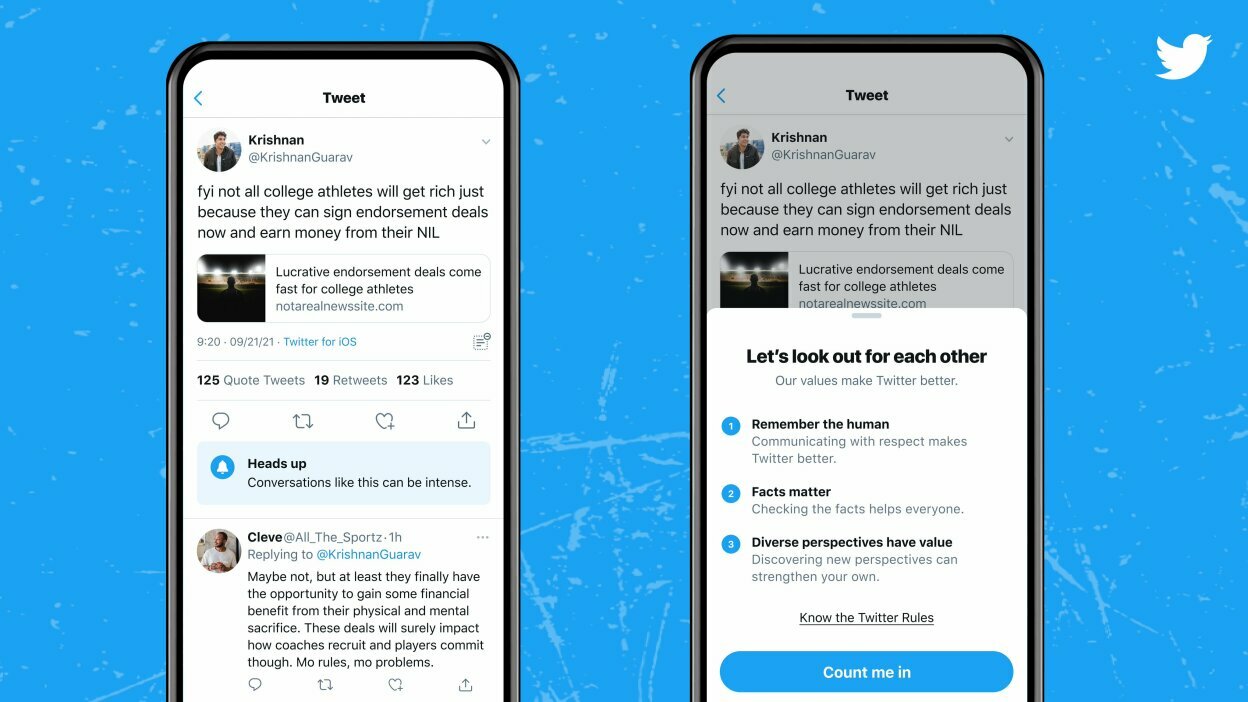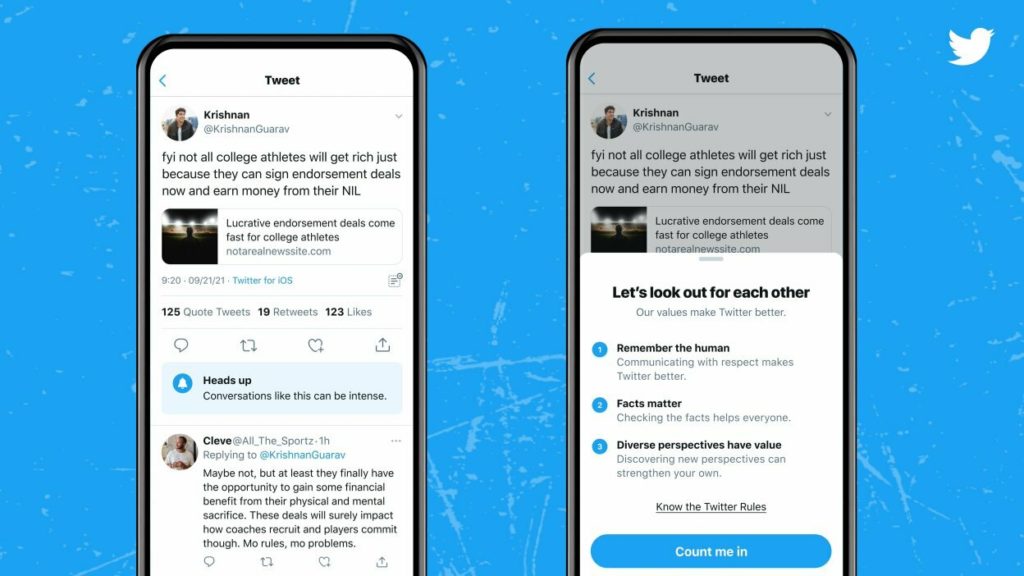
The vibes, it turns out, didn’t need checking.
Twitter quietly ended its brief foray into preemptively warning users that things might get “heated or intense” in tweet replies. The feature, announced Oct. 6, was initially positioned as a test and appeared part of Twitter’s larger “conversational health” initiative.
“Heads up,” read one example warning. “Conversations like this can be intense.”
Bloomberg reporter Kurt Wagner first reported the news, and wrote that Twitter product lead Christine Su explained the feature wasn’t a hit with users.
“This was a limited experiment so only a small bucket of randomized accounts were even eligible to get prompts,” replied a Twitter spokesperson when reached for comment by Mashable. “We understand that building and experimenting like this out in the open can be messy at times, but it is also how we hold ourselves accountable and increase transparency, even when the feedback can be hard to hear.”
The spokesperson did not immediately reply when asked when the test was officially ended.
This is not the first platform tweak that Twitter has rolled out to only later claw back, and it likely won’t be the last. Other conversational health features, like the ability to limit replies, so-called humanization prompts, and quote-tweet prompts, have had varying levels of success.
SEE ALSO: Twitter tests ‘humanization prompts’ in effort to reduce toxic replies
Meanwhile, Fleets — Twitter’s attempt at a Stories-like feature — was abandoned altogether.
“We look forward to reporting back about what’s next, after we have a bit more time to review the results, but you should expect additional iterations from us in the future,” added the company spokesperson.
Being overly sentimental with test features just isn’t Twitter’s vibe, it seems.







